PhD Interview Questions and Answers (13 Questions + Answers)

Most PhD applications include an interview. This allows your university (and perhaps even your prospective supervisor) to discuss the PhD with you in more detail.
This article lists some of the most common PhD interview questions along with their answers. The goal is to help you prepare for a PhD interview and pass with flying colors.

1) How did you develop this proposal?

When responding to this question, demonstrate your thought process, research skills, and the evolution of your ideas. Let's choose the subject of "Renewable Energy Integration in Urban Planning" as an example.
Sample answer:
"My proposal on 'Renewable Energy Integration in Urban Planning' originated from my undergraduate thesis on sustainable cities. Intrigued by the potential of renewable energy in urban environments, I conducted a literature review to identify gaps in current research. This review highlighted a lack of comprehensive strategies for integrating renewable technologies at a city-wide level. I then consulted with experts in urban planning and renewable energy, which provided practical insights into the challenges and opportunities in this field. I designed a methodology that combines spatial analysis with energy modeling to explore optimal renewable energy integration in urban landscapes. This proposal represents an amalgamation of academic research, expert consultation, and innovative methodology development."
This answer is effective because it mentions a literature review demonstrates the ability to conduct thorough research and identify gaps in existing knowledge.
2) Why do you wish to pursue a PhD?
For this question, it's important to articulate your passion for the subject, your long-term career goals, and how the PhD program aligns with these aspects.
Let's choose the subject of "Artificial Intelligence in Healthcare" for this example.
"I am passionate about leveraging technology to improve healthcare outcomes, and pursuing a PhD in Artificial Intelligence in Healthcare aligns perfectly with this passion. During my Master's, I was fascinated by the potential of AI to revolutionize diagnostic processes and personalized medicine. I believe a PhD will provide me with the deep technical knowledge and research skills necessary to contribute significantly to this field. My goal is to develop AI systems that enhance medical diagnostics, ultimately improving patient care and treatment efficiency. This PhD program, known for its pioneering research in AI and strong healthcare collaborations, is the ideal environment for me to develop these innovations and achieve my career aspirations in healthcare technology."
This is a great answer because you clearly state that the PhD will provide the necessary skills and knowledge, indicating a clear understanding of the purpose of the program.
3) Why do you think you are the right candidate for this PhD program?
Discuss how your research interests align with the program's strengths and the faculty's expertise. Explain how the program's resources, courses, and research opportunities can help you achieve your academic and career goals.
"I am deeply passionate about environmental science, particularly in the area of sustainable urban development. This passion was ignited during my master's program in Environmental Studies at XYZ University, where I completed a thesis on urban green spaces and their impact on city microclimates. This research not only honed my skills in data analysis and GIS mapping but also highlighted the importance of interdisciplinary approaches to environmental issues. I am drawn to your PhD program at ABC University because of its innovative research on sustainable urban planning and the renowned work of Professor Jane Smith in this field. Her research aligns with my interest in integrating green infrastructure into urban planning to mitigate climate change effects. My perseverance, attention to detail, and ability to synthesize complex data make me an ideal candidate for this challenging program. Pursuing this PhD is integral to my goal of becoming an environmental consultant, where I plan to develop strategies for cities to reduce their environmental footprint."
This response is effective because it mentions particular aspects of your experience and the program, avoiding generic statements. It also outlines how the PhD fits into your career path.
4) What do you plan to do after you have completed your PhD?
Be specific about the type of career you aspire to, whether it's in academia, industry, research, etc. Explain how the PhD will equip you with the skills and knowledge for your chosen career path.
"After completing my PhD in Computational Neuroscience, I plan to pursue a career in academia as a university professor. My doctoral research on neural network modeling will provide a strong foundation for teaching and conducting further research in this area. I aim to develop innovative courses that bridge computer science and neuroscience, addressing the growing demand for interdisciplinary knowledge in these fields. Additionally, I intend to continue my research on applying machine learning techniques to understand brain function, which has potential implications for developing new treatments for neurological disorders. This academic pathway allows me to contribute significantly to both education and research in Computational Neuroscience."
This is a great answer because it connects the PhD research directly to future career plans.
It also articulates how your work can impact both academia and the broader field of Computational Neuroscience.
5) Why have you chosen this specific PhD program?
Mention specific aspects of the program that attracted you, such as the curriculum, research facilities, faculty expertise, or reputation.
Explain how the program aligns with your research interests or academic background.
"I chose the PhD program in Artificial Intelligence at MIT because of its cutting-edge research and interdisciplinary approach, which perfectly aligns with my academic background in computer science and my passion for machine learning. The program's emphasis on both theoretical foundations and practical applications in AI is particularly appealing. Additionally, the opportunity to work under the guidance of Professor [Name], whose work in [specific area, e.g., neural networks or AI ethics] has deeply influenced my own research interests, is a significant draw. This program is an ideal fit for me to further develop my skills and contribute to the field of AI, ultimately aiming for a career in AI research and development in the tech industry."
This answer connects your background and goals to the program's offerings.
Including a specific professor's name shows detailed knowledge about the program and faculty.
6) What impact would you like your PhD project to have?
When answering this question, convey both the academic significance and the potential real-world applications of your research. Let's choose a project focused on developing eco-friendly battery technologies for electric vehicles for this example.
"My PhD project aims to develop new eco-friendly battery technologies for electric vehicles (EVs), addressing both the environmental impact of battery production and the efficiency of energy storage. I hope my research will contribute to the academic field by advancing our understanding of sustainable materials for energy storage, potentially leading to publications and patents. Beyond academia, I envision this project significantly impacting the EV industry by providing a more sustainable and efficient battery alternative. This innovation could play a crucial role in reducing the carbon footprint of transportation and supporting global efforts towards a greener future. Ultimately, I aspire for my work to not only advance scientific knowledge but also drive real-world changes in how we approach energy sustainability in transportation."
This is an excellent answer because it connects the project to larger environmental goals and societal benefits. It also reflects a forward-thinking approach, demonstrating your understanding of the project's potential long-term implications.
7) What difficulties would you expect to encounter during this project?
It's important to demonstrate awareness of potential challenges and convey a proactive mindset toward problem-solving. Let's choose a project focused on the development of a novel AI-driven diagnostic tool for early detection of neurological diseases for this example.
"In developing an AI-driven diagnostic tool for early detection of neurological diseases, I anticipate several challenges. Firstly, the accuracy and reliability of the tool depend heavily on the quality and diversity of the data used for training the AI algorithms. Obtaining a comprehensive dataset that adequately represents the population can be difficult due to privacy concerns and data availability. Secondly, ensuring the AI model's interpretability to be clinically useful while maintaining high performance is another challenge, given the complexity of neurological diseases. To address these, I plan to collaborate with interdisciplinary teams, including data privacy experts and neurologists, to source and utilize data ethically and effectively. I also intend to continuously refine the AI model, focusing on both its predictive accuracy and clinical applicability. These challenges, while significant, present valuable opportunities for innovation and interdisciplinary collaboration."
This response is effective because it clearly outlines realistic challenges specific to the AI diagnostic tool project. It also presents a proactive approach to overcoming these challenges, showing problem-solving skills.
8) How will you fund this project?
When answering this question, show that you've thought about the financial aspects of your research and are aware of funding sources that are available and applicable to your project.
"I have identified multiple funding sources to support my renewable energy research project at Stanford University. Firstly, I plan to apply for the DOE Office of Science Graduate Student Research (SCGSR) Program, which offers substantial support for projects focusing on sustainable energy. My proposal for this grant is already in progress, highlighting how my project aligns with the DOE's priorities in advancing clean energy technologies. Additionally, I'm exploring departmental fellowships at Stanford, particularly those aimed at renewable energy research. I am also keen on establishing industry partnerships, given the project's relevance to current energy challenges and the potential for collaborative funding and technological exchange. Last but not least, I will seek conference grants to present my research findings, which can lead to further academic collaborations and additional funding opportunities."
Notice how this answer mentions funding sources that align with the renewable energy focus of the project and the resources available at Stanford University.
9) Tell us about a time you experienced a setback
Focus on a situation relevant to your academic or research experience. Let's use a real-world example where a research experiment failed due to unexpected variables.
"During my Master’s thesis on the effects of soil composition on plant growth, I faced a major setback. My initial experiments, which involved growing plants in different soil types, failed to produce consistent results due to unanticipated environmental variations in the greenhouse. This was disheartening, especially as the deadline approached. However, I responded by reassessing my experimental setup. I consulted with my supervisor and decided to control more variables, such as humidity and temperature. I also refined my data collection methods to include more frequent soil and plant measurements. These adjustments led to more reliable results, and I successfully completed my thesis. This experience taught me the importance of adaptability in research and reinforced the value of meticulous experimental design."
This is a great answer because it shows how you’ve encountered and overcame a specific problem, demonstrating resilience and adaptability.
10) What are your strengths and weaknesses?
When answering this question, it's important to present a balanced view of yourself, showing self-awareness and a commitment to personal development. Choose strengths that are relevant to a PhD program and weaknesses that you're actively working to improve.
"One of my key strengths is my analytical thinking, which I demonstrated during my Master's project where I developed a novel algorithm for data analysis. This required me to not only understand complex theories but also apply them creatively to solve real-world problems. As for weaknesses, I sometimes struggle with overcommitment, taking on too many projects at once. This occasionally led to stress during my undergraduate studies. However, I am actively working on this by improving my time management skills and learning to prioritize tasks more effectively. I've started using project management tools and setting clear boundaries, which has already shown improvements in my workflow and stress levels."
This answer maintains a good balance between strengths and weaknesses. It also shows self-awareness, demonstrating a proactive approach to personal development.
11) Why have you chosen to study for a PhD at this university?
Mention specific aspects of the PhD program that attracted you. Explain how your research interests align with the work being done at the university.
"I am drawn to the PhD program in Astrophysics at Caltech due to its outstanding reputation in space research and the unparalleled resources available at the Owens Valley Radio Observatory. My research interest lies in the study of exoplanets, and Caltech's active projects in this area, such as the Zwicky Transient Facility, align perfectly with my academic goals. The opportunity to work under the guidance of Professor [Name], known for pioneering work in exoplanetary atmospheres, is particularly exciting. Additionally, Caltech's collaborative environment and emphasis on interdisciplinary research are conducive to my professional growth, providing a platform to engage with experts from various fields in astrophysics."
This response directly connects your research interests with ongoing projects and facilities at Caltech. It also shows you’ve done your research on faculty members and their work.
12) What can you bring to this research group?
Focus on your unique skills, experiences, and perspectives that will contribute to the research group's success. Let's choose the field of Biomedical Engineering at Johns Hopkins University for this example.
"As a prospective member of the Biomedical Engineering research group at Johns Hopkins University, I bring a unique combination of skills and experiences. My expertise in microfluidics, honed during my Master’s research, aligns well with the group’s focus on developing lab-on-a-chip devices for medical diagnostics. I have also co-authored two papers in this field, demonstrating my ability to contribute to high-impact research. Additionally, my experience in a start-up environment, where I worked on developing portable diagnostic tools, has equipped me with a practical understanding of translating research into applications. I thrive in collaborative settings, often bringing interdisciplinary insights that foster innovative problem-solving. I am excited about the prospect of contributing to the group’s ongoing projects and introducing fresh perspectives to advance our understanding and application of biomedical technology."
This response shows your relevant expertise, ability to work in a team, and the unique perspectives you can offer, positioning you as a valuable addition to the research group.
13) Do you have any questions for us?
Asking good questions demonstrates your motivation. It also shows that you’ve given some genuine consideration to the project and/or program you’re applying to.
Some questions you can ask the interviewer include:
- What will the supervision arrangements be for the project?
- What kind of training and skills sessions are offered as part of the PhD program?
- How many other PhD students has this supervisor seen to completion?
- Are there any major developments or partnerships planned for the department?
- Are there likely to be any changes to the funding arrangements for the project?
- What opportunities will I have for presenting my research?
Remember: you’re a good student, with lots of potential. You’re considering at least three years of hard work with this university. You need to know that you’ll get on with your supervisor, that your work will be appreciated and that there are good prospects for your project.
What to wear to a PhD interview
Wear formal attire for a PhD interview. Your best bet is to wear a suit. A navy blue suit is the best and most versatile option. No matter your gender, a suit is always very professional.
For men, wear a suit with a tie, dress shirt, and dress shoes. For women, wear a suit (pantsuit or skirt suit) with a blouse, or conservative dress, and closed-toe shoes.
When in doubt, it’s better to be slightly overdressed than underdressed. The goal is to make a professional impression and feel confident, without your attire distracting from the conversation.
What to expect from a PhD interview
At its core, a PhD interview will consist of questions that allow your potential supervisors to get to know you better and have an understanding of what you’d like to study, why you’ve chosen your field of study, and whether you’d be a good fit for the PhD program.
You should expect general questions to help the interviewer get a sense of your likes and dislikes, and your overall personality.
Next, expect questions about your personal motivations for studying a PhD. Your interviewer will also be interested in any relevant experience you have to qualify you to study this PhD.
In the next section, expect questions about your PhD project. You should be prepared to discuss your project idea in detail and demonstrate to the interviewer that you are the ideal candidate.
Last but not least, the interviewer will discuss your future ambitions and give you an opportunity to ask questions. Remember that this interview goes both ways.
It’s important to ask the interviewer relevant questions to show your engagement and the serious consideration you are giving their program.
You are preparing to spend several years of your life at this school. Think about what is important to you and what would make or break your decision to attend this university.
Prepare a list of questions ahead of the interview.
Understanding the interviewer’s point of view
During a PhD interview, interviewers are typically looking for a range of traits that indicate whether you are well-suited for the rigors of a doctoral program and a research career.
These traits include:
Intellectual Curiosity and Passion: A strong enthusiasm for the subject area and a desire to contribute to and expand knowledge in the field.
Research Skills and Experience: Demonstrable skills in conducting research, including designing experiments, collecting and analyzing data, and interpreting results. Prior research experience relevant to the PhD topic is often a plus.
Resilience and Perseverance: The capacity to handle setbacks and challenges, which are common in research, and to persist in the face of difficulties.
Collaboration and Teamwork: Although PhD research can be quite independent, the ability to work well with others, including advisors, faculty, and other students, is crucial.
Self-Motivation and Independence: The drive to work independently, manage one's own project, and stay motivated over the long term.
Fit with the Program: Alignment of the candidate’s research interests and goals with the strengths and focus of the PhD program and faculty.
These traits not only indicate your readiness for a PhD program but also your potential to contribute meaningfully to their field of study and succeed in a research-oriented career.
Related posts:
- University Interview Questions (16 Questions + Answers)
- Project Manager Interview Questions (14 Specific Questions + Answers)
- Strength-Based Interview Questions (21 Questions + Answers)
- Engineering Interview Questions (15 Questions + Answers)
- Business Analyst Interview Questions (17 Questions + Answers)
Reference this article:
About The Author

PracticalPie.com is a participant in the Amazon Associates Program. As an Amazon Associate we earn from qualifying purchases.
Follow Us On:
Youtube Facebook Instagram X/Twitter
Psychology Resources
Developmental
Personality
Relationships
Psychologists
Serial Killers
Psychology Tests
Personality Quiz
Memory Test
Depression test
Type A/B Personality Test
© PracticalPsychology. All rights reserved
Privacy Policy | Terms of Use
Which program are you applying to?
Accepted Admissions Blog
Everything you need to know to get Accepted
January 18, 2024
How to Prepare for Your PhD Interview
Although not all PhD programs require interviews, most do, and you will usually interview with the faculty member who will be supervising your research. If you’re invited to a PhD interview, you want to take full advantage of the opportunity you’ve been given by preparing effectively.
In this post, we’ll focus on some of the questions you might be asked in your PhD interview and offer tips on how to prepare for them.
What were the factors that prompted you to apply to this program?
- Review your notes on the department.
- Familiarize yourself with the research agendas of the faculty members, especially the professors you want to work with.
- Make note of any unique opportunities you would have as a student in the department. Does the department provide funding to attend and/or present at conferences, or subsidized housing for graduate students?
- Read journal articles or books written by the professors you are most interested in.
What are your research interests?
- Be prepared to briefly discuss your past research and how it influenced what you want to research in the PhD program.
- You might also be asked about your research methods. You’ll want to have an explanation ready as to why you elected to investigate your hypothesis the way you did. If you could start again, what would you do differently?
What is your research plan?
- Present the specific topic you aim to research in the program and explain how you believe this research will contribute to the field.
- Be prepared to discuss important issues in the field, such as bias and discrimination in AI training data or algorithms.
What strengths are you bringing to this program?
- Know what your standout skills, qualities, and experiences are – as well as any areas you might need to improve on. If you have had any teaching experience, mention that you look forward to being a Teaching Assistant, if that type of position is available to you.
What are your goals post PhD?
- Do you want to continue to research and teach in academia? Or do you want to research in an industry setting? Be clear about your objectives, but it is also okay to indicate that you are open to other opportunities that might present themselves while you’re in the PhD program.
What questions do you have?
- It is important to have a few questions prepared in advance. We do not recommend trying to come up with compelling questions on the spot.
- Some questions you can consider include “Will I have the opportunity to collaborate with faculty in other related departments?,” “What do you think differentiates this department from other programs?,” and “What advice do you have for me that would help me excel in this program?”
- If the topic you are researching crosses over into other departments, you can ask about interdepartmental collaboration.
Usually, your PhD program interviewer will have read your application materials and your resume/CV before your meeting. So, make sure to review everything you submitted, especially if it has been several months since you uploaded your information. You don’t want to be caught off guard. However, this type of interview is also a conversation. Be confident – the faculty would not be taking the time to interview you if they weren’t serious about your candidacy. And remember to smile; it’s not an interrogation!
With 30 years of career and admissions experience at four universities, including Cornell’s College of Engineering and Johnson Business School, Dr. Karin Ash facilitated students’ entry into the world’s best companies. As an adcom member, she also evaluated applications and therefore knows what schools and employers seek. Want Karin to help you get Accepted? Click here to get in touch!
Related Resources:
- Applying to PhD Programs: When, Where, How, and Why?
- How to Write About Your Research Interests
- Deciding Who Should Write Your Letters of Recommendation – PhD
About Us Press Room Contact Us Podcast Accepted Blog Privacy Policy Website Terms of Use Disclaimer Client Terms of Service
Accepted 1171 S. Robertson Blvd. #140 Los Angeles CA 90035 +1 (310) 815-9553 © 2022 Accepted

- Home »
- Advice »
- Studying For A PhD
find your perfect postgrad program Search our Database of 30,000 Courses
Dos and don’ts of a phd interview.
Studying for a PhD is an amazing academic achievement, as well as serious time commitment , and it's certainly not one for the faint-hearted. Once you've decided to embark on this academic path, your PhD interviewer needs to be sure that you are able to rise to the challenge and are academically capable of achieving this ultimate goal. And the PhD interview is how they assess your potential for a place on the program when applying for a PhD .
Your PhD interview will consist of questions that will enable your potential supervisors to get to know you better and have an understanding of what you’d like to study, why you’ve chosen your field of study, and whether you’d be a good fit for the PhD program.
This interview will also give you the opportunity to ask questions about the program and the university to make sure it’s the place you’d like to study.
Here, we've compiled a list of dos and don'ts of a PhD interview from the interviewer's perspective, to hopefully guarantee you success when answering the PhD interview questions and thus beginning your Doctorate journey.
PhD interview questions to help you prepare
Your interviewers will ask a range of different questions in order to determine whether you will be let into the PhD program . They will ask different types of questions to get an idea of who you are, what your interests are, and how much of an asset your research will be to the university.
General PhD interview questions
One important aspect of the PhD interview is for the interviewers to get a good idea of who the interviewee is.
They will do this by asking a series of questions that are more general to try and get a sense of your likes and dislikes, and your overall personality. These opening questions could be viewed as ‘warm up questions’ and are likely to also include questions and discussions about your academic history, reasons why you are interested in your particular research topic, and why you’re studying a PhD.
Example questions could include:
- What is your academic background?
- Describe your personal qualities?
- What sets you apart from the candidates?
- What are your strengths and weaknesses?
The PhD interviewer will ask you questions about your motivation to study a PhD which you should find straightforward to answer as you clearly have a keen interest and knowledge in a particular research topic to be considering it at PhD level. Now all you need to do is illustrate to the interviewer why you are the right person for this PhD at their university.
The first way to do this is to go into detail about your personal motivations for studying a PhD. Do you have a historical or family link with this topic? Was it an area you covered in your bachelors degree that you now want to explore further? Are you destined for a career in academia?
Another thing you should demonstrate in your PhD interview is what experience you’ve had either academically, personally or in the workplace that has strengthened your passions for your research.
It is also important to show that you have researched the university, the supervisor and your project. If many universities offer this particular PhD course, then why did you choose this specific one? Do they have resources that will be useful? Is there a supervisor you’d like to work with?
Example questions that you can expect to receive at this stage in your PhD interview could include:
- Why are you motivated to pursue a PhD and why in this specific field?
- Why did you choose this university?
- Why did you choose this program?
- Tell us about a time you experienced a setback
Relevant experience
Your PhD interviewer will be interested in any relevant experience you have to qualify you to study this PhD. Use your answers to draw attention to your specific qualifications that may not be obvious from your CV or project. Discuss other courses that you’ve taken, past research, etc. Use this time to reassure your prospective supervisor that you have the skills and experience needed to undertake a doctorate.
Consider what is the critical knowledge and skills needed for this project and explain to the interviewer how you meet these.
Don’t just summarise your CV as the interviewer has already seen this. They will want to see your passion and motivation for your research project.
Example questions they may ask at this stage could be:
- What experience do you have that makes you suitable for this particular PhD and in what ways?’
- Why should we choose you?
Your PhD project
Interviewers will want to know that students understand their project and the research involved in successfully studying a PhD.
You should be prepared to discuss your project idea in detail and demonstrate to the interviewer that you are the ideal candidate. For example, you should explain that you understand the current gaps in knowledge around your topic and how you propose to fill these gaps. Show that you know what your aims and objectives are and how your efforts will contribute to the research field.
Here are some example questions to help you discuss your PhD project:
- How are you planning to deliver your project on time?
- What will you do if you do not find the expected results?
- What difficulties would you expect to encounter during this project?
- How did you develop this proposal?
Future ambitions
It’s important for students to know where their work may lead them. Knowing how a PhD will help achieve this, and articulating these aspirations to the interviewer, will give the interviewer a better picture of the student’s goals.
If the goal is to have an academic career, use this as an opportunity to show the interviewer that you understand the academic career path.
An example question at this stage could be:
- How will this PhD open the door for future ambitions and aspirations?
Your own questions
As well as being properly prepared to answer questions about your PhD proposal, it is also important to ask your own questions to the interviewer to make sure that this is the university and PhD program that you’re looking for.
Example questions that you could ask a potential supervisor could include:
- Are you likely to remain at the university for the duration of my PhD program?
- Are there good links within a specific industry/work field for your post-PhD career?
- How many PhD students to you supervise at one time?
- How much contact time am I likely to get?
PhD interview questions: DOs
- "Brand" yourself. Show your personality . We must remember you for something besides your academic skills.
- Be confident and sure of your abilities, but don’t be overconfident. You are not the best in everything that you do, so don't pretend you are!
- If we ask you a witty question, reply with a witty answer.
- All PhD interviews are different. Be flexible when preparing for your interview and don’t take anyone’s advice as definite, instead use it to build upon.
- Avoid simple yes or no answers.
- Show that you are an independent and original thinker by engaging in debate and supporting your arguments with reasonable statements. However, always be polite and argue without insulting us.
- Be professional. Professionals can find the right measure between being serious and being informal.
- Show that you care about what you want to study and about what we do, and don’t be interested in our PhD program just to get the title.
- Research what we do. We don’t want to talk to someone who knows nothing about our work.
PhD interview questions: DON'Ts
- Don’t undermine the importance of 'soft' general questions like “Where do you see yourself in future?” or “What is motivating you to do the PhD?”
- Don't be passive in communication. We are interviewing you, but you are also interviewing us.
- Don’t give too general answers. Be specific and to the point because that will show us that you are not feigning but you know what you are talking about.
- Don’t get nervous if you think the interview is not going well. In many cases this is just your personal impression, which may be wrong.
- Don’t come dressed as if you just woke up – make an effort!
- Don’t talk jargon. It is not very likely that we were born in the same place or have the same background, so we may not understand what you are saying.
- Don’t try to pretend that you are someone you're not. We don’t like pretentiousness and can usually see straight through it.
- Don’t try to be too funny. We may have a different sense of humour than you do, especially if you come from a different culture.
- Don’t become too emotional during the PhD interview. Enthusiasm is good but not if it’s exaggerated, then it becomes quite off-putting.
Summary of PhD interview questions
This table shows some examples of different categories of questions you might enounter at a PhD interview.
Related articles
Applying For A PhD
How To Prepare For A PhD Viva
Are You Ready For A PhD?
How To Get The Most From Your PhD Supervisor
Common PhD Myths
Alphabet of PhD Study
Postgrad Solutions Study Bursaries

Exclusive bursaries Open day alerts Funding advice Application tips Latest PG news
Sign up now!

Take 2 minutes to sign up to PGS student services and reap the benefits…
- The chance to apply for one of our 5 PGS Bursaries worth £2,000 each
- Fantastic scholarship updates
- Latest PG news sent directly to you.
Introduce yourself in a PhD interview (4 simple steps + examples)
The opening of an application interview for a PhD position usually starts with short introductions of everyone participating in the conversation. Many applicants wonder how to best introduce themselves in a PhD interview. Four simple steps (including examples) help you to develop a powerful self-introduction .
What to do in a PhD interview introduction
What not to do in a phd interview introduction, introductions in a phd interview.
Interviewing for a PhD position can be nerve-wrecking.
On the one hand, the interview is an advanced stage in the PhD application process and a reason to celebrate having come so far.
On the other hand, you may feel much more vulnerable during an interview than when sending a carefully crafted application letter.
A PhD application interview requires you to react quickly to questions, and you will never know what exactly the admissions committee will ask. Nonetheless, you can properly prepare for a PhD interview. One of the elements is preparing a powerful introduction of yourself.
A self-introduction summarises who you are and why you want the PhD position. A powerful self-introduction can set the tone for the whole interview.
If you are unprepared, there is a risk of going in all directions when it is your turn to introduce yourself. It may throw you off and make you extra nervous for the remainder of the interview.
You may also like: How to strategically prepare for a PhD application
Several things are pivotal in PhD interview introductions:
- Keep it short: A good self-introduction is not too long. Of course, it should be longer than simply stating “ My name is … and I would like this position because I love doing research .” However, when introducing yourself, you should avoid speaking for longer than 3-4 minutes.
- Don’t take away all answers to potential questions: Some applicants try to predict all possible interview questions in advance. Then they try to answer all of them as part of their self-introduction. Don’t! There will be plenty of time in the interview to go into details. In a self-introduction, stick to a handful of key points that you want to bring across.
- Take non-verbal cues into account: Non-verbal cues include facial expressions, gestures and body language. During a self-introduction, you should make sure to come across excited about the interview instead of scared and defensive. Smile. Pause. You should also try to read the body language of the interviewer/s: Leaning forward, moving, or hand gestures are cues to wrap up your self-introduction.
Several things are best to be avoided when you introduce yourself in a PhD interview:
- Don’t start babbling: Many PhD applicants start babbling when they are nervous. Babbling means they talk rapidly and incomprehensively. They may repeat information and go in all directions. The easiest way to prevent babbling is by preparing the self-introduction in advance. The four steps explained below can help you with this preparation.
- Don’t provide too detailed information: A self-introduction in a PhD interview serves one purpose: introducing yourself at the start of the interview. Nothing more and nothing less. Hence, there is no need to go into detail about every single aspect. For instance, it is enough to explain what bachelor’s degree you earned. No need to list all individual courses that you followed.
- Don’t already ask questions: It is advisable not to end your self-introduction with several questions that you have. Rest assured that there will likely be a time when the interviewers ask whether you have any questions about the PhD programme that you applied to. However, most interviews will begin with questions to the applicant and not the other way around. So be mindful of this general structure of PhD interviews, and don’t create an awkward situation by immediately bombarding your interviewer/s with your own questions.
Step 1: State your full name
The first step is easy-peasy: State your full name. Why?
Not all names can be intuitively pronounced. So help your interviewer/s by saying out loud your whole name. In that way, they will be more comfortable addressing you by name throughout the interview.
Step 2: Give a brief overview of your educational (and professional) background
Your educational background has a lot of weight in the decision of the application committee on whether you are a good match for a PhD programme or not.
Therefore, it is useful to provide a brief summary of your educational background. Those who have work experience also benefit from including it.
Step 3: Explain why you are interested in the PhD position
The next step is to justify your interest in the PhD position. There are several powerful ways to explain why you want to do a PhD.
What is important in this next step, however, is to link your motivation to the specific PhD position that you are interviewing for. Remember to keep it relatively short!
Step 4: Thank everyone for the opportunity to be interviewed
The final step is to thank everyone for the opportunity to be interviewed. Be gracious and polite, and express your enthusiasm for the interview. This will create a comfortable atmosphere in which questions can be freely asked and answered.
Get new content delivered directly to your inbox!
Subscribe and receive Master Academia's quarterly newsletter.
10 key skills of successful master's students
Clever strategies to keep up with the latest academic research, related articles.

37 creative ways to get motivation to study

Dealing with failure as a PhD student
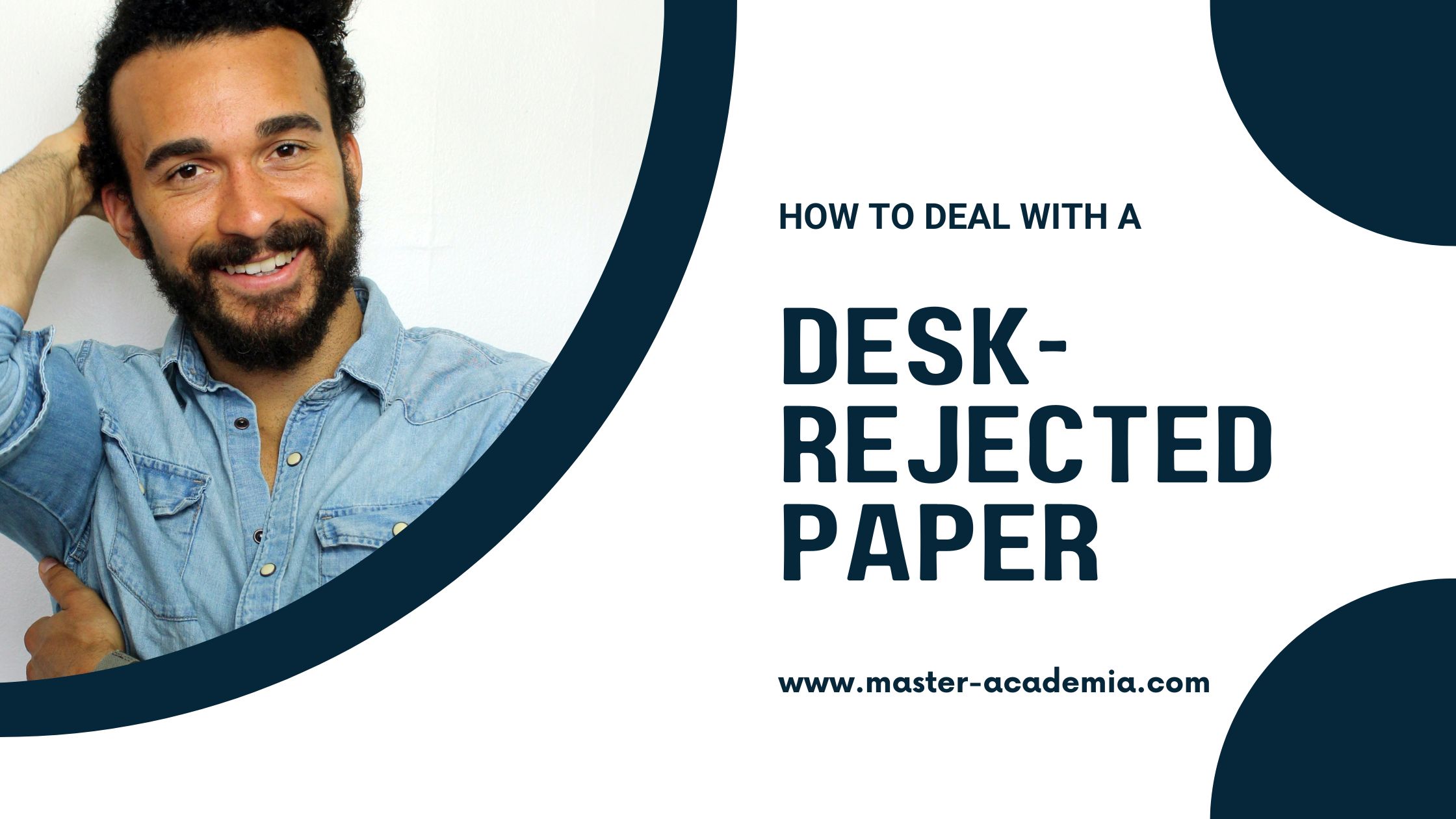
How to deal with a desk-rejected paper
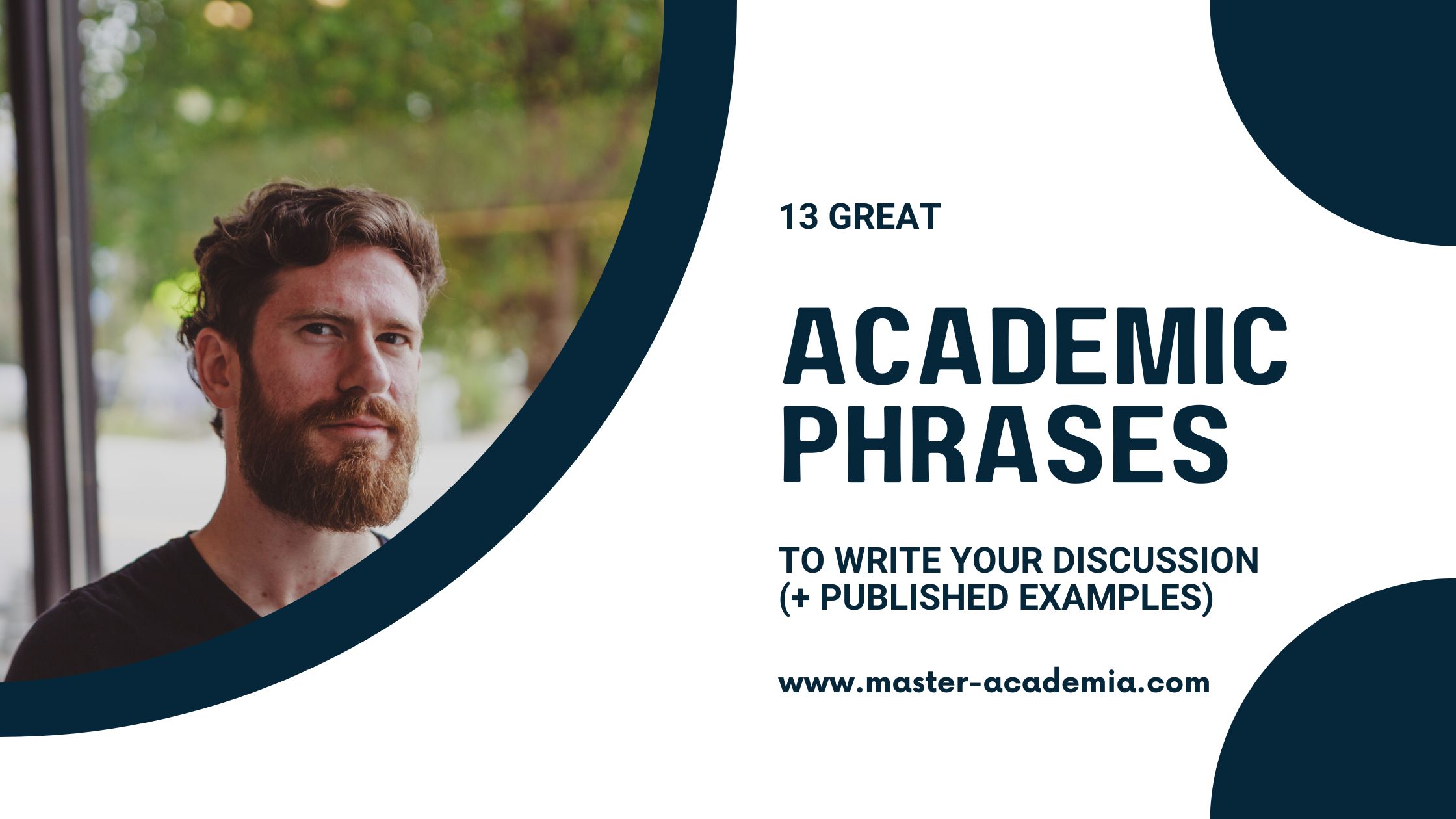
13 great academic phrases to write your discussion (+ published examples)
- For candidates
- For employers
- For members
- English (EN)
- Nederlands (NL)
How to prepare for a PhD interview
One of the most important hurdles before you decide to embark on a career in academia is the interview with the hiring team. No matter whether it is a PhD position or a postdoc, an interview can make or break your chances of being selected. Here are some of my tips to prepare for a PhD interview.
1. Research the hiring team
Generally, an academic interview consists of the researchers or research managers who are involved intimately with the project they are hiring you for. For a PhD it means the supervisors, collaborators and the promoter. It is generally a good practice to get to know their research output, interests and their academic background before appearing for the interview. Not doing so, signals that either you are disinterested or unprepared. I generally browse through their university staff page as well as their Google Scholar profile and read one or two recent articles before appearing for an interview.
2. Research the research objective
If you know what the project you are being hired for is about, it might be a good idea to read up on the basics to see what the objective of the project is and what is generally the state-of-the-art knowledge. This will prepare you to think about how your own research interests and skills align with what you will be tasked to accomplish. In my PhD interview, I read a few research articles about my PhD topic to get a sense of what the work will be directed towards.
3. Prepare to present
Depending on the university, the position and the hiring team, an applicant might be asked to present either their ideas on what can be done and what is their research vision regarding the subject. This presentation showcases your ability to disseminate your work as well as your ability to be clear and thoughtful which are hallmarks of a successful academic. Alternatively, you might be asked to present some of the research work you have done in the past. In this case, the team is looking to see your rigor, thoughtfulness and confidence in your work.
4. Avoid being over-enthusiastic
Universally, people get hired for their perceived enthusiasm about the position. This applies to academia as well. However, many job applicants can be a little too enthusiastic in an interview and that is not generally perceived in a positive light. The best way to avoid that is to think about why this position interests you rather than think about what you should say to impress the interviewers and to be honest.. Keep your answers short and to the point and do not try to portray yourself as being desperate to get this position. Remember that the interview is an opportunity for the interviewer as well as the interviewee to get to know one another and see if this is a good fit.

5. Avoid being too nervous
On the other end of the spectrum, you might also be too nervous and anxious about the interview. This generally happens to first time interviewees and might result in them forgetting their well-prepared answers or even think clearly during the interview. In these cases, the outcome of the interview is generally poor. In my own experience, I have realized that the more interviews you face the less nervous you become. Also, for a first-time interviewee, to not be too nervous, the best solution is to realize that the hiring team wants to interview you because they see something interesting in your profile. That should inspire some confidence in you and help you put your best foot forward.
6. Asking relevant questions
Most advice offering blogs such as these will state that you should always ask questions at the end of your interview. These questions signal your enthusiasm as well as curious nature. I disagree with this slightly. In my experience, asking genuinely relevant questions is the best way. You can be certain that there are things about the project which you don’t know and are curious about. Do not hesitate to ask about those. If you can’t come up with a lot of questions, that is fine. You can also ask questions regarding the research interests of the hiring team and why they were motivated to start this project. You can also ask practical questions such as targets, salary, work hours, etc. but I feel that these should be best left for subsequent interviews and not the first one.
7. Your profile is your story
In general, most PhD interviews touch on the subject of why you want to pursue this position, or what your motivations are. For such questions, you need to be prepared to tell the story of your interests, skills, education and everything else about your life that led you to being interviewed at that moment. This is not something you can piece together easily. Rather, I will suggest thinking about this and prepare an honest story in advance that you can then tell the interviewer. It doesn’t have to be like a sales pitch, but it should clearly show your motivations and aspirations as well as the highlights of your profile so far.
In my opinion, these are some of the most important tips to remember when you attend a PhD interview. Obviously, there are many more tips and tricks that you can find on the web regarding how to prepare for an interview in general that also apply to PhD interviews.

Recent blog posts
Tips for successful collaborations with government partners, tips for successful collaborations with industry partners, how to compile your publication list, how to develop a publication strategy, how to use x (twitter) as a scientist, centering your teaching around your teaching vision, how to build up an (international) network, transitioning into the last leg of your phd journey, what changes between a postdoc and assistant professorship, how to write an academic cv.
The Best Questions to Ask During a PhD Interview
A PhD interview is not only a chance for the department to determine if you’re a good fit for their program, it’s also an opportunity for you to decide if their program is right for you. Coming to the interview prepared with some questions shows the selection committee you’re serious about their program. Stuck on what to ask? Give these questions a go!
1. Are there opportunities for summer funding or travel grants?
Not all programs pay students during the summer months. If this is the case, you should ask if the program provides financial support for students to do research-related activities in the summer like take language classes or do fieldwork. Are there grants available from the department or university for research-related travel? In a similar vein, does the department or graduate school provide travel grants to reimburse PhD students for conference expenses?
2. What are recent alumni doing now?
Getting a PhD is a big investment of time and money so potential students want reassurance that it will pay off in the future. Before you commit to a program, find out where its recent alumni are now working. Do most alumni go on to positions in academia or are most of them working in industry or alt-ac?
3. What sort of special resources does the university have for research in this field?
Some universities have resources above and beyond the norm, such as their own collection of papyri or a world-renowned affiliated hospital, which graduate students can access for their research. This can give one program an edge over another.
4. How long does it take on average for students to earn their degree?
The length of a PhD depends on which country you are studying in, however if one program has a longer-than-average time to degree it’s worth finding out why. Does the program require more coursework or have more exams than other similar programs? It’s also work asking what percentage of students don’t complete the program as a high percentage could be a red flag.
5. Will I have the opportunity to teach during my PhD?
If you want to be a professor, teaching will be an essential part of your job. It is extremely beneficial to gain teaching experience during your PhD and many North American PhD programs actually require at least one year of teaching.
6. Will I have the opportunity to publish during my PhD?
Publishing is an important part of academic life, but the publishing expectations of graduate students will depend on the field. If you are interviewing in STEM and social sciences, it is more relevant to ask how many first author papers most students publish by the time they graduate. In the humanities, where graduate publications are rarer, the better question will be if most students publish while they are in the program. In both cases, you should also ask how the faculty helps students learn to navigate publishing process.
7. What is the funding level of this PhD position?
If the job posting or department website doesn’t go into detail about PhD funding, you can take this opportunity to clarify the funding level and total cost of the program. Depending on your circumstances, you might also want to ask whether the department offers any paid assistantship positions or supports external fellowship/grant applications.
8. What makes this program unique?
The core elements of all PhD programs are the same, so try to ask a question that gets at the differences. What does this program do to differentiate itself from the competition? It can be interesting to hear how multiple faculty members in the same department answer this question.
9. Are there any planned absences in the department in the coming years?
Do any key faculty members (including your supervisor) have sabbaticals planned while you would be doing your PhD?
10. How does the dissertation process work in this program?
It’s helpful to ask questions such as can students choose their own committee members, does the university offer finishing fellowships, and how long on average does it take students in this program to complete their dissertations?
Discover related jobs
Discover similar employers
Accelerate your academic career
Spanish Academic Job Titles
While there will be some differences university to university, here's a ...
A Guide to English Proficiency Tests
Here is an overview of the four most widely-accepten English proficience...
The Difference Between a CV and a Resume
The terms CV and resume are used interchangeably, however, there are sev...
6 Ways to Make Yourself More Employable
Here are some things you can do in the to stand out on the job market.
Fight Procrastination
Here are our best tips to stop procrastinating and get to work.
Everything You Need to Know About the GRE
Depending on where you plan to apply for graduate school, you may have t...
Jobs by field
- Machine Learning 178
- Electrical Engineering 164
- Artificial Intelligence 163
- Programming Languages 130
- Molecular Biology 104
- Engineering Physics 95
- Electronics 91
- Materials Chemistry 90
- Algorithms 90
- Computational Sciences 88
Jobs by type
- Postdoc 303
- Assistant / Associate Professor 185
- Professor 114
- Research assistant 94
- Researcher 92
- Lecturer / Senior Lecturer 83
- Tenure Track 65
- Engineer 58
- Management / Leadership 49
Jobs by country
- Belgium 250
- Netherlands 168
- Switzerland 110
- Luxembourg 55
Jobs by employer
- Mohammed VI Polytechnic Unive... 91
- KU Leuven 81
- Ghent University 65
- ETH Zürich 57
- Eindhoven University of Techn... 57
- University of Luxembourg 53
- KTH Royal Institute of Techno... 44
- University of Twente 43
- Wenzhou-Kean University 32
This website uses cookies

Community Blog
Keep up-to-date on postgraduate related issues with our quick reads written by students, postdocs, professors and industry leaders.
Questions to Ask During Your PhD Interview

- By Zebastian D.
- August 22, 2020

As someone applying for PhD positions, you’ll no doubt be thinking of and preparing for the interview with your potential supervisor(s). You’re absolutely right to be doing this and planning your answers to some of the PhD interview questions that they’ll probably ask you; make sure you’ve read our guide on this to help you prepare.
Remember though that the PhD student-supervisor relationship works both ways; as much as the potential supervisor is interviewing you for a PhD position within their lab, you should also have the mindset that you’re also interviewing the professor for the role of supervisor, and be ready to ask questions! Ultimately the key thing you want to know after your PhD interview is you are both a good fit for each other.
With that in mind, I’ve prepared a common list of questions that you should consider asking to help you decide if the supervisor and the research lab is the right fit for you. You don’t need to ask all these questions but instead use this list as a guide for picking what feels most important to you.
I should also note that some of the answers to these questions can usually be found through a quick Google search of the potential supervisor or looking at their university profile. So do think about which questions in particular you want to bring up in person at the PhD interview.
Now on to the questions….
How many PhD students have you supervised previously, and did they all gain their PhDs?
You’re asking this to firstly work out how experienced the professor is at supervising students, based purely on the numbers previously supervised. The reason to ask the second question of how many students gained PhDs is to get an idea of the supervisor’s track record of successful supervision. The lower the percentage of students that went onto complete their PhD under his or her supervision (and not leave the program early ), the more alarm bells that should be ringing for you. This of course shouldn’t be your only data point in the decision-making process, and you should try and find out more about why those that left their PhD program before completion, did so. Equally it’s also a possibility that some students have been successful in their PhD research in spite of a supervisor’s lack of support. A good way to get a truer sense of this is by speaking to the supervisor’s current and past students.
Whilst a supervisor’s successful track record can be reassuring, don’t be put off if they haven’t supervised many (or even any) students before, particularly if they’re still fairly new in the job. There are many other ways in which you can get a sense of the supervisor-student fit.

How many years does a PhD project usually take in your lab?
If you’re in the UK, a full time PhD should normally take you 3-4 years to complete , as reflected by most funding grants for PhD research being for this time frame. You want to know and have some reassurance that most students in this lab do finish within this time frame. Asking this question will also help you better understand the supervisor’s attitude towards completion time frames; is this someone that would have no issue with a student that’s been working on their PhD for 6 years or are they driven to help students complete ‘on time’.
What are the key milestones for progression that you expect from students?
This is a good follow on from the previous question. Some supervisors can be very ‘hands off’ and set no expectations on their students about deliverables and if this is the type of student-supervisor relationship you’re after (which some are), then perfect!
However, whilst a PhD project is an independent body of work, that doesn’t mean you have to do it in isolation. Having a supervisor that also acts as a mentor is important; a key aspect of this is to help keep you on track to complete your project ‘in time’, which is most effectively done using regular milestones.
The actual milestones will vary between supervisors but what you’re looking for in their response is some indication that they’ve actually thought about them. Examples of milestones may be the completion of the literature review within the first 6 weeks of starting, first experimental data captured by month 3 and first paper published by the time you end year 1.
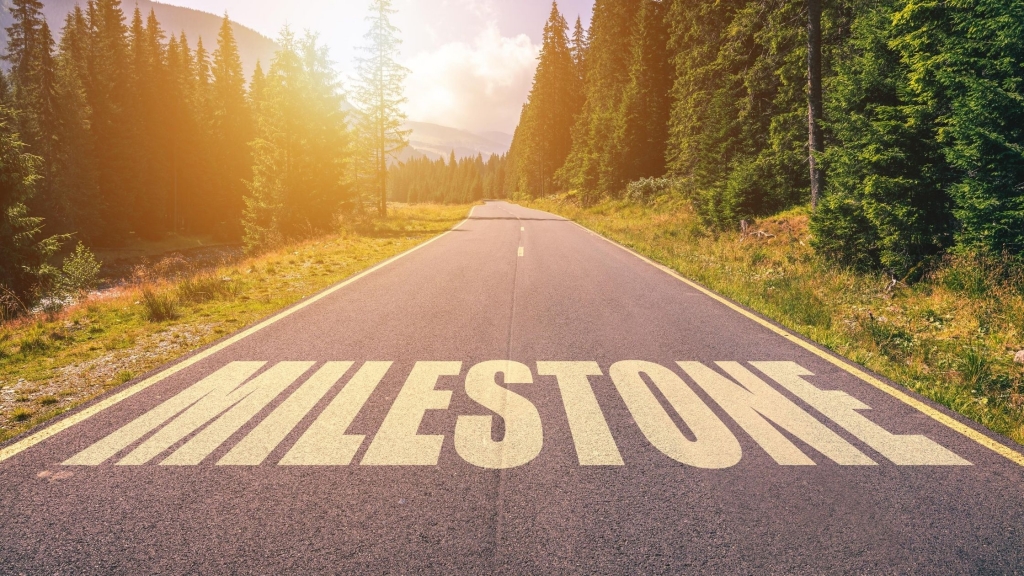
How many other students do you supervise?
You ideally don’t want your supervisor to have too many (>5) other PhD students under his or her supervision at any one time, simply because of the dilution of their time that will naturally occur. Being part of an active research lab is a big advantage however, so you don’t necessarily want to be the only student under their supervision either. Remember that the professor may also be responsible for several Master’s and undergraduate students too so you just need to know what to realistically expect from him in terms of available time to meet with you regularly.
How often do you meet with your PhD students?
You don’t want a supervisor that’s too prescriptive in how you run your project, but you do want someone who you know you can rely on to meet with regularly. Some professors set weekly one-on-one or group research meetings that occur at the same time, day and venue; you know exactly what you’re getting here. Others tend to meet less frequently but still at regular intervals. A good balance would be to have catch up meetings every 2 weeks but it’s important to know upfront what the expectations are from both sides about how often to meet.
Finding a PhD has never been this easy – search for a PhD by keyword, location or academic area of interest.
How flexible is the direction of the PhD project?
At the PhD level of higher education, the supervisor is there to provide mentorship and guidance to help you avoid going in a completely wrong direction with your research. You should however expect to have the freedom to take your project in any direction you want to (within reason). This should be the case even if it means deviating from the original research questions that were proposed at the start; you and your supervisor should be in agreement before you start about how much flexibility there can be. Remember too that sometimes the project may have to stay closely aligned to the original plan if it’s required by the industry funder, so this decision may be out of the supervisor’s hands to some extent.
What funding is available for this project?
You should know by the time you come to interview if the project is to be self-funded or if there is specific funding associated with it. It may feel like an awkward question to ask but you need to be very clear on how much of a living stipend you should expect and if there is any additional funding for things such as conference travel, paying for journal publication fees or other bench fees; you don’t want any unpleasant surprises about finances when you’ve already started the PhD.

Do you expect there to be any changes in funding during the course of the project?
Specifically, you want to find out if there’s any risk that the funding associated with the project could be removed. Most often, funding bodies don’t transfer the entire monetary amount of the agreed funding up front in one lumpsum (which can be in excess of £75,000 for a 3-year studentship). Instead, payments are made in instalments and may be done so on the basis that certain milestones are met. For industry funded projects, for example, there may be a service work element (such as specialist analysis using university-based equipment) associated with the funding which will need to be delivered on time for the university to continue to receive money. In reality a complete loss of funding is unlikely to happen, but you should find out if this is at all a possibility of happening.
What is the source of the funding?
It’s important for you to understand how your project will be funded. As discussed in the previous question, the specific funder may place certain requirements on the university that need to be fulfilled to receive the funds. Don’t let this put you off applying or even impact your decision to take on the specific project, but it’s an important factor to be aware of.
Are there any opportunities to earn additional money as a PhD student?
Even if you will receive a stipend during the course of your research project, it comparatively won’t be a lot of money to live on. If you want it, the opportunity to earn extra money can make a big difference in managing your finances. This may in the form of one day/week working as a research technician or paid work preparing and delivering lectures to undergraduate students. It’s useful to know if these opportunities will exist to help you manage your expectations about your finances. Make sure you don’t let yourself feel obligated to take on this additional work however, even if it is paid; the priority will be ensuring your research progresses on schedule.
Will I have the opportunity and be expected to publish papers?

In the UK there is no requirement for you to have published any journal papers before you are awarded a PhD. Doing so however can go some way towards making your final viva that much easier, and also giving you a ‘head-start’ on your publication track record if you continue on into academia after your PhD.
You should get a sense of if your potential supervisor sees an opportunity for you to publish your research, if this is something that you want to do. Equally you should be aware of the supervisor’s expectations about publishing to avoid any potential conflict between your supervisor wanting you to publish work during your PhD and you wanting to wait until you’re in the post-doc stage before writing papers.
How many papers have previous PhD students published with you?
Knowing the answer to this should give you a good idea about the expectations and opportunities of publishing papers during your PhD. It’s certainly a positive sign to know that previous students have successfully published their research and is often a sign of a good supervisory system being in place.
How often does your research group present at academic conferences?
Having the opportunity to present your research at an academic conference is a key experience to have obtained during your time as a PhD student. Some supervisors actively encourage this and ensure that all funding applications include allocations for paying for conference related fees. Others are less convinced about the value of students going to conferences, particularly due to the additional expense of doing so, and may therefore not be as supportive of conference participation.
It’s useful to know what the norm is within the supervisor’s research group so that there are no surprises further down the line.
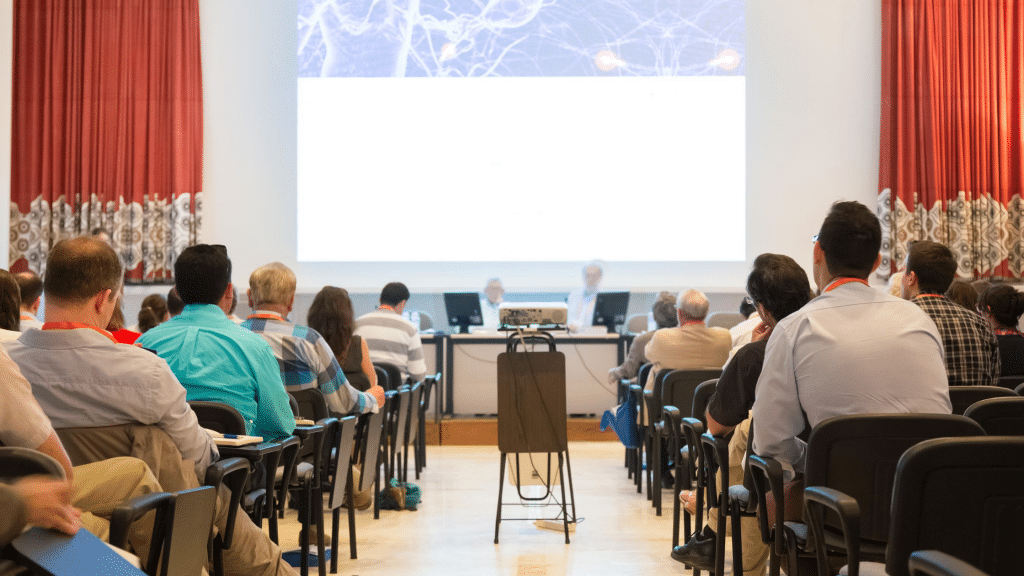
Is there funding support available for attending conferences?
Again, to be clear on expectations of funding and support for conference attendance, you should find out if there are funds specifically allocated for this purpose. If there aren’t, does the supervisor actively provide support to their students in applying for additional funding for this?
Are there courses and training sessions available for PhD students?
Find out if there are extra resources available to you should you want to use them. For example, do the supervisors students go on paper writing courses, or workshops on how to perform literature reviews? There are lots of new things that you’ll be doing during your PhD, especially at the beginning so it’s good to know that there’s external help available if and when you need it.
What are your past PhD graduates doing now?
This is an interesting one to find out from the supervisor. Are most of their graduates continuing their career development within academia or have many moved into industry work or even to a field completely different to their area of research? Ideally, you’d want this to align with your own career options. If most PhD holders have gone into industry whereas you want to pursue an academic career, you should try and find out why they ended up leaving academia. For example, did these graduates initially have aspirations of becoming professors themselves but were not able to do so or does your particular field normally open up more opportunities within industry?
What kind of support do you or the university provide for helping with jobs after?
In particular, what role does the supervisor play in helping their recent PhD graduates find their next job role? Do they have any connections within industry that they’d be able to help you network with? Or have any of their past PhD students stayed on in the lab as post-docs and are there resources in place for you to potentially do the same?
Will there be opportunities to teach undergraduate students?
The opportunity to give lectures to undergraduate students or lead tutorials with them can be a good way to earn some extra money during your PhD (note though that not all universities/departments formally pay PhD students to do this). Getting teaching experience is also important if you’re planning on continuing on down an academic career path at a university so it’s useful if you can gain some of this during your PhD.
Do you as a lab do any team activities together?
This will help you get a sense of the environment you’ll be working in for at least the next three years. Is this a lab with several PhD students and post-docs that make up an active ‘research family’? Does the team ever go out for lunch together or day trips away together to unwind? This can be a great way to build a sense of comradery in a research job that can often feel like you’re working alone in. Some supervisors actively encourage and get involved in nurturing a team environment whilst others are more hands-off, leaving the students to do their own thing.

What is the work environment like? Do students work in a shared office space?
Be clear on what your daily workspace will be like at the lab and university. Do all PhD students sit together in an open space or are there smaller office spaces for one or two students to work in? Some people prefer the buzz of an open space whilst others like the quiet of lone working. Either way, you should know what your work environment will look like for the next three years and plan accordingly (e.g. buy some noise cancelling headphones if you need some quite time in the open plan office).
I’ve given you a number of different questions to think about and ask your potential supervisor at your PhD interview. Not all of them may be relevant, or even appropriate to ask, so do think carefully about which ones you do want to bring up at the interview and which answers you could find out independently by either speaking to other students or looking online. Your research project and your experiences at the university will be so much more enjoyable if you can make sure you and your supervisor are a good fit for each other. The best way to do this is to ask questions!

An academic transcript gives a breakdown of each module you studied for your degree and the mark that you were awarded.

The title page of your dissertation or thesis conveys all the essential details about your project. This guide helps you format it in the correct way.

In this post you’ll learn what the significance of the study means, why it’s important, where and how to write one in your paper or thesis with an example.
Join thousands of other students and stay up to date with the latest PhD programmes, funding opportunities and advice.

Browse PhDs Now

The unit of analysis refers to the main parameter that you’re investigating in your research project or study.

This post explains the difference between the journal paper status of In Review and Under Review.

Sam is a new PhD student at Teesside University. Her research is focussed on better understanding how writing poetry can help cancer survivors to work through mental and emotional issues.
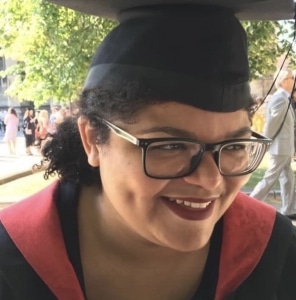
Nina’s in the first year of her PhD in the Department of Psychology at the University of Bath. Her project is focused on furthering our understanding of fatigue within adolescent depression.
Join Thousands of Students
How To Prepare for a PhD Interview
- Katie Baker
- September 26, 2023

So, you’ve written your personal statement, you’ve sent through your application and now you’ve been invited to a PhD interview, the first step is to congratulate yourself; only 30 – 50% of PhD applicants make it through to the initial interview stage. The invitation is a sure-fire sign the admissions team were impressed by your academic track record, essays, research proposals and personal statement, but you aren’t out of the woods and in the door just yet.
PhD interviews are conducted by universities to discuss the PhD program or your research proposal with you in more detail. You can also expect to be asked questions about your academic background, skills, and career goals. By asking these questions, university admissions teams will assess whether you are capable enough to carry out doctoral research. With enough preparation, your PhD interview doesn’t need to be daunting.
To help you prepare for your interview, this page will outline advice on how to prepare for a PhD interview and give you an insight into what typically happens at PhD interviews. However, it is worth bearing in mind that each university interviews its potential PhD candidates differently.
Along with following the advice outlined here, you will also want to ensure you have a good idea of what to expect from your interview. For example, some university boards will ask you to do a short presentation; others will only ask you questions based on your research proposal and other application materials that spurred them to pick up the phone and invite you to elaborate on your application.
Know What To Expect From a PhD Interview
Even though PhD interview questions can vary significantly from institution to institution, depending on the circumstances of your PhD application or be formulated specifically around your subject area, every interview serves the same purpose.
So while it is difficult to give you an idea of a standard PhD interview format, the principle is the same; you will be discussing the finer details of your research proposal or your academic background if you are applying for a program with pre-determined aims and objectives.
Formal interviews will put you in front of a postgraduate recruitment panel, potentially comprising admission tutors and PhD supervisors; on the other end of the spectrum, you could be asked to meet your potential supervisor for lunch or in a coffee shop on campus to discuss your research interests. Some universities even choose to include orientation activities in the initial interview process; this will give you the chance to explore the research facilities and meet staff members and peers.
Whichever setting your interview takes place in, and whoever is present, remember that the focus will always be on your achievements, academic interests, and goals.
PhD Interview Presentations
If a PhD interview presentation is required, you will be informed by the university well in advance to allow you to prepare. Your prospective department will also outline their expectations for the presentation, including how long it should be, what needs to be covered, and how it should be delivered.
Typically, PhD interview presentations should take no longer than 15 minutes to complete, be delivered via PowerPoint and cover your academic achievements and background, research methods and the impact of your research. However, for students interviewing for advertised positions, there may be a requirement to give a short presentation on a specified topic related to your field.
How Long Does a PhD Interview Take?
There is no one-size-fits-all answer for how long a PhD interview takes; the duration depends on the format, how quickly you provide the information that the postgraduate recruitment panel and several other factors.
With some interviews, you should block out an entire day in your calendar as the university may invite you to meet the recruitment panel in the morning, have lunch on campus, explore the department, and have your formal interview afterwards. With others, you can expect to meet your future supervisor and speak with them for an hour over coffee. Whichever interview format you are invited to, remember you’ll be doing the degree be prepared to make the most of it!

PhD Interviews for Advertised Positions
Most STEM PhD programs come with pre-defined aims, usually part of a research program with broader research objectives; your doctoral research will contribute to the body of research. Furthermore, many advertised PhD projects will also have secure funding. With these kinds of positions, all applicants must prove via their interviews that they can carry out the research to a high standard and prove they deserve the secured funding or studentship.
For example, imagine a particular PhD degree involving the analysis of a particular protein. Being a talented and competent life scientist can get you the interview, but exhibiting your knowledge of the specific proteins and familiarity with the techniques and equipment you need to run your analytical research will seal you the position. You don’t need to be an expert; you need to prove your capacity to become an expert – given the chance.
With advertised positions, the interviews are typically more formal, and the main component will comprise a question-and-answer session where you will be in front of a qualified postgraduate recruitment panel involving three or more people, including project supervisors, postgrad admissions staff, lead investigators and funding reps.
The panel will focus on your research goals and interests and how they correlate to your academic background. You may also be expected to expand on sections of your application which need more clarification.
It isn’t heard of for interviewers to ask you to give a specific presentation in addition to answering questions. However, this presentation shouldn’t be too long or complex. Alternatively, you may be asked to cover your research proposal in more intricate detail or summarise previous research projects.
At the end of the interview, you will get the opportunity to ask your own questions; prepare some in advance; this will show your interest and enthusiasm, and you will also gain clarification that the program is right for you.
PhD Interviews for Self-Proposed Research Proposals
If you have applied for a position with a self-proposed research proposal, the interview will differ from the interviews for students hoping to complete doctoral research with pre-defined objectives.
With self-proposed research proposals, you won’t only need to prove your competency, but you will also need to prove the value and originality of your project. Once accepted, you will have freedom over the research you conduct – to a certain extent – however, you will still gain access to similar levels of support, training and resources.
Even though you have to defend your research proposal, these interviews are typically more flexible and relaxed; you won’t have the pressure of competing for secured funding or affirming why you deserve studentship above other applicants. However, you will face just as much scrutiny as students competing for advertised positions as you will need to confidently convey that the project is viable in terms of time, methodology, and facilities available at the university.
It is more likely that interviews for students proposing their own research will be more casual; don’t take this as an indication that they are any less important. The postgraduate research panel or your potential supervisor will still need confirmation that you have the right skills and knowledge to go in-depth with research in their field.
Taking on a new doctoral candidate is a big multi-year commitment for PhD supervisors; you will want to assure them it is worth their time. Typically, this process will include going through points already illustrated in your proposal and expanding on uncovered areas. If funding is on the cards, it will be allocated on a merit basis; with this in mind, elaborate on the value of your project.
How to Prepare for a PhD Interview
Regardless of how your interview is conducted, you will still need to speak about your research proposal and previous work and experience. Spend ample time reviewing your former essays, considering your previous feedback, and going over your proposal with a fine-tooth comb. You should always be prepared to defend any claims you have made with evidence and examples.
During the interview, expect the academic work carried out in your bachelor’s and master’s degrees to be brought up. The merits of them won’t seal your acceptance offer, but discussing your academic background can exhibit your enthusiasm and show how your interest in your research topic developed.
In addition to re-reading your work, take the time to familiarise yourself with the current or recent research carried out by your supervisor. This familiarity will prove that you will relish the opportunity to work with them. If you aren’t sure who your PhD supervisor will be, review the research carried out in the department.
The lack of originality in research proposals is one of the main reasons for PhD application rejections, which typically happens before the interview stage. However, during your PhD interview, you will also need to verify, if you have self-proposed your own research, that you have investigated the field to ensure your thesis will be completely original.
For PhD projects with pre-set aims, never overlook any of the details of the program. Beyond reviewing the objectives, take an interest in who will be involved, clue yourself in about external funders, and note the available development and training.
Practice doesn’t only mean perfect; it also means you are committed, capable and confident. Enlist the help of your current academic contacts and peers while practising your interview or presentation material. This is especially important if you don’t have much experience with public speaking or giving presentations.
What To Wear and Bring to a PhD Interview?
Appearance isn’t everything in a PhD interview, but it can go a long way for potential candidates wanting to make the best first impression. Even though academics don’t typically share a similar wardrobe with CEOs during their average workdays, you should present yourself how you would if you were attending a job interview for your dream job.
The PhD admissions team will inform you if you need to bring anything specific to your interview, such as a presentation. However, if it makes you feel more comfortable and prepared, you can bring hard copies of your previous essays or dissertations, which you can re-read or reference where appropriate. It may also be beneficial to bring a hard copy of your research proposal if you submitted one.
A notepad and pen will also help you to take notes after you have asked your questions at the end of the interview. Remember, like a job interview, a PhD interview will assess your suitability for the university and the suitability of the university for you. Doctoral research is a big commitment; you will want to ensure that the institution is right for you; your initial interview may be your only chance to explore the campus and meet the staff.
You might also like

Do You Get Paid for a PhD?
Do You Get Paid for a PhD? For many students who don’t have the luxury of never worrying about money, one of the main considerations

Where Can a PhD in Finance Take Me?
Where Can a PhD in Finance Take Me? In the dynamic world of finance, a PhD is not just an academic accolade; it’s a launchpad

Should I Do a PhD in London?
Should I Do a PhD in London? Embarking on a PhD journey is a significant decision, one that shapes your academic and professional future. Once
Enquire with us
We are here to help and to make your journey to UWS London as smooth as possible. Please use the relevant button below to enquiry about a course you would like to apply, or to clarify any questions you may have about us and our admission’s process. After you submit your enquiry, one of our advisers will get back to you as soon as possible.
- College of Arts & Sciences
- Graduate Division
- College of Liberal and Professional Studies

Benjamin Shestakofsky, Assistant Professor of Sociology, was featured in a video interview with PhD Candidate Elena van Stee for Contexts Magazine
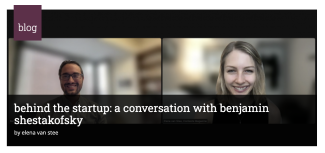
Benjamin Shestakofsky, Assistant Professor of Sociology, was featured in a video interview with PhD Candidate Elena van Stee for Contexts Magazine. The interview celebrates the publication of Ben’s new book, Behind the Startup: How Venture Capital Shapes Work, Innovation, and Inequality . You can watch the full interview and find lightly edited excerpts from their conversation on the Contexts Blog: https://contexts.org/blog/behind-the-startup/
© 2024 The Trustees of the University of Pennsylvania
Report Accessibility Issues and Get Help

IMAGES
VIDEO
COMMENTS
Be honest about the things you find challenging, but identify them as training needs and discuss how you expect to improve upon them as part of your PhD. Do answer: I feel that I'm a good written communicator. My existing academic and professional work demonstrates an ability to put forward ideas clearly and concisely.
Common PhD Interview Questions. In this guide, we'll share 11 common PhD interview questions and our suggestions on how to answer them. A PhD interview is an essential step in securing a doctorate position. This is because it enables the prospective supervisor to get to know you better and determine whether you'd be a good fit for the project.
Top 10 Common PhD Interview Questions and Answers. Video: Top Interview Tips: Common Questions, Body Language & More. In this video, we dissect an entire job interview from start to finish. We analyze everything from common interview questions to etiquette and how to follow up. Some institutions require interviews with potential candidates to ...
Most PhD applications include an interview. This allows your university (and perhaps even your prospective supervisor) to discuss the PhD with you in more detail. This article lists some of the most common PhD interview questions along with their answers. The goal is to help you prepare for a PhD interview and pass with flying colors.
Here are ten common PhD interview questions. 1. Tell us about yourself. This is a popular opener for just about any type of interview. It's meant to be an easy icebreaker, but that doesn't mean there isn't a wrong answer. Make sure to your response is relevant to the context of a PhD interview. Talk about your academic background ...
To ace your Ph.D. program interviews, prepare to answer—and ask—these key questions. You've made it to the last step of the Ph.D. application process: the interview. Congratulations! But amid the excitement and butterflies, don't neglect the crucial next step: preparation. Grad school interviews—in which aspiring graduate students meet ...
Here are some ways to prepare for your interview: Review your research proposal or statement of purpose. The interviewer will likely make reference to it during the interview. Go over the experiences that have prepared you for a PhD and be ready to give specific examples during the interview. Be able to explain the reasons why you applied to ...
Usually, your PhD program interviewer will have read your application materials and your resume/CV before your meeting. So, make sure to review everything you submitted, especially if it has been several months since you uploaded your information. You don't want to be caught off guard. However, this type of interview is also a conversation.
I'm a diligent worker and a creative thinker, and I'm eager to learn more about statistics.". Read more: Interview Question: "Tell Me About Yourself" (Tips and Example Answers) 2. Describe why you're the right candidate for this program. Ph.D. admissions committees look for individuals that follow institutional standards and reflect ...
PhD interview questions can be very tricky to answer and this is for a good reason. Studying for a PhD is an amazing academic achievement, as well as serious time commitment, and it's certainly not one for the faint-hearted.Once you've decided to embark on this academic path, your PhD interviewer needs to be sure that you are able to rise to the challenge and are academically capable of ...
The opening of an application interview for a PhD position usually starts with short introductions of everyone participating in the conversation. Many applicants wonder how to best introduce themselves in a PhD interview. Four simple steps (including examples) help you to develop a powerful self-introduction. Contents Introductions in a PhD interviewWhat to do in a Four simple steps (including ...
If you have a PhD interview coming up you will want to prepare some answers to the possible questions that your PhD supervisors will ask you. In this video I...
Here are some of my tips to prepare for a PhD interview. 1. Research the hiring team. Generally, an academic interview consists of the researchers or research managers who are involved intimately with the project they are hiring you for. For a PhD it means the supervisors, collaborators and the promoter. It is generally a good practice to get ...
A PhD interview is not only a chance for the department to determine if you're a good fit for their program, it's also an opportunity for you to decide if their program is right for you. Coming to the interview prepared with some questions shows the selection committee you're serious about their program.
As someone applying for PhD positions, you'll no doubt be thinking of and preparing for the interview with your potential supervisor(s). You're absolutely right to be doing this and planning your answers to some of the PhD interview questions that they'll probably ask you; make sure you've read our guide on this to help you prepare.. Remember though that the PhD student-supervisor ...
Whilst it's possible to generalise about the PhD supervision process, the actual routines are as varied as the people involved. Ask how often your supervisor typically 'meets with' their students (whether face-to-face or otherwise), how often they expect to read and feedback on work, etc. Again, this shows that you're serious and thinking about ...
A PhD, much like any other interview can be a terrifying experience. You have successfully manoeuvred the steps required to get to the interview stage and are clearly qualified to undertake a PhD ...
The opening of an application interview for a PhD position usually starts with short introductions of everyone participating in the conversation. Many applic...
I'm Maria, FindAPhD's student ambassador and i'm in my first year at King's College London. PhD interviews can seem scary, so here's some advice to help you ...
September 26, 2023. Home » PhD » How To Prepare for a PhD Interview. So, you've written your personal statement, you've sent through your application and now you've been invited to a PhD interview, the first step is to congratulate yourself; only 30 - 50% of PhD applicants make it through to the initial interview stage.
Execu-Search found that 55% of candidates interview for more than one position at a time. For PhDs, job-searching the right way means: ... If you want a PhD-level position in industry, expect a ...
Benjamin Shestakofsky, Assistant Professor of Sociology, was featured in a video interview with PhD Candidate Elena van Stee for Contexts Magazine. The interview celebrates the publication of Ben's new book, Behind the Startup: How Venture Capital Shapes Work, Innovation, and Inequality. You can watch the full interview and find lightly edited excerpts from their conversation on the Contexts ...
For a mock interview with me, book here! https://www.fiverr.com/share/ebqE9gI show you my Oxford PhD interview presentation slides as an example of a researc...